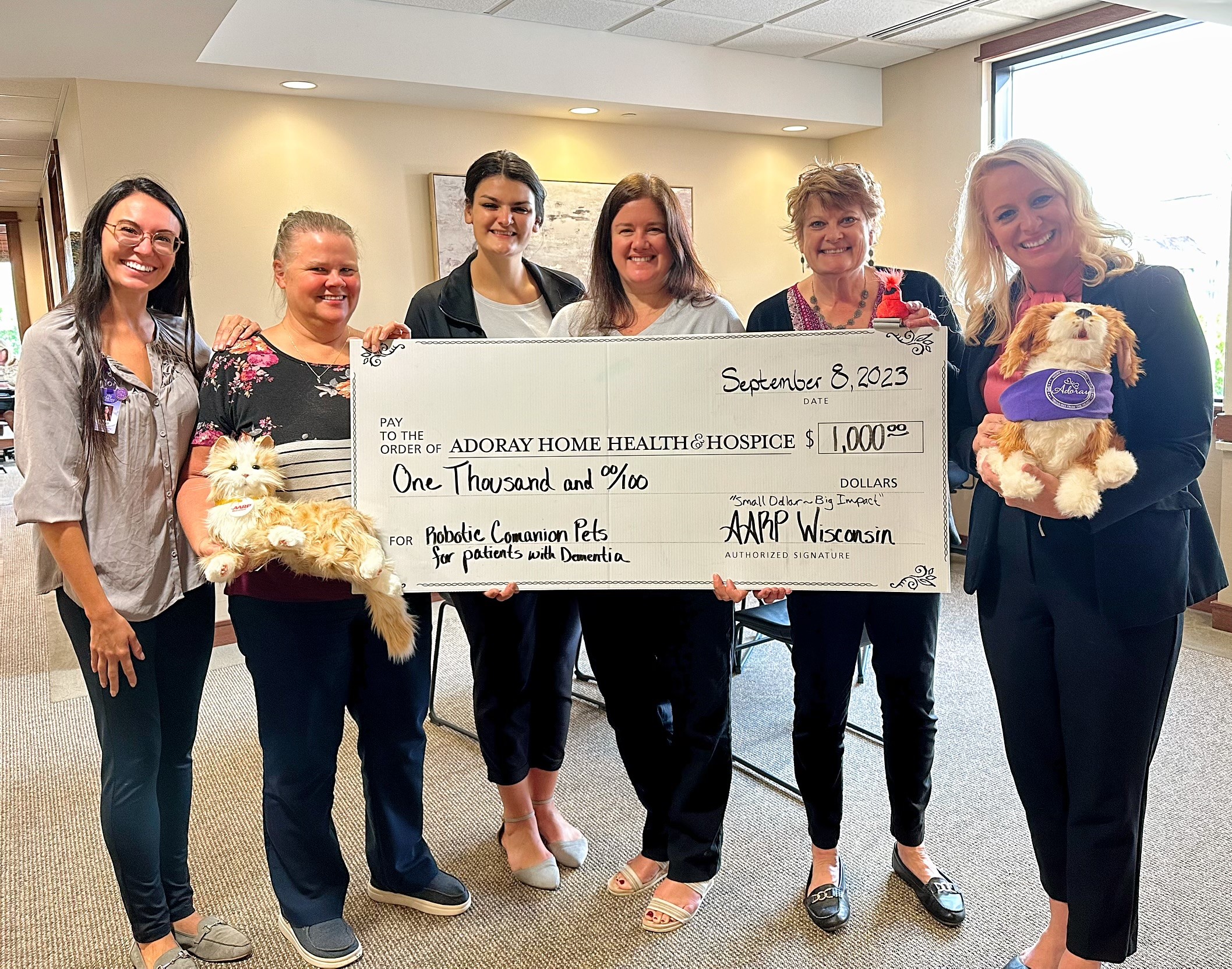AARP Hearing Center

A proposal submitted by Adoray Home Health and Hospice in Baldwin to provide robotic pets for patients with dementia has been selected to receive this month’s AARP Wisconsin “Small Dollar, Big Impact” grant. The $1,000 grant will help the organization to continue purchasing these robotic pets, which cost about $150 each.
We at AARP WI are awarding grants each month throughout 2023 to projects across the state that are designed to improve communities and make them better places for everyone to live, work and play as they age.
Adoray Home Health and Hospice is a community-based, not-for-profit organization serving patients in rural and urban communities in the west central Wisconsin counties of St. Croix, Pierce, Polk, Burnett, Dunn and Barron.
“We want to ensure patients have a quality end of life experience,” said Amanda Gustafson, CEO of Adoray, which is hoping to continue seeking grants and donations in order to give these robotic pets to anyone with dementia or any pediatric hospice patient. She explained the value of these robotic pets.
“America is a nation of animal lovers. In addition to the joy and unconditional love these furry friends give us, medical experts also recognize their potential benefits to our health. In fact, interacting with animals has been shown to reduce stress and blood pressure, relieve feelings of loneliness, and elevate mood. Among people with Alzheimer’s and other dementia, the positive results are particularly noticeable. Yet most pets require substantially more care than these patients – or their caregivers – can deliver.”
This project gives dementia patients all the fun and benefits of having a real live pet without the usual physical and financial demands, Gustafson said. “Thanks to modern technology and innovation, our new Companion Pets Program provides lifelike, warm and fuzzy, interactive robotic cats and dogs to improve the quality of life for patients with dementia, their loved ones, and caregivers alike.”
Through sensors, motors, and other sophisticated technology, each robotic cat or dog is programmed to respond to a person’s presence, voice, and touch. For instance, the puppy barks, wags its tail, and has a subtle heartbeat.
And just like a real cat, the robotic kitty can randomly mew, open and close its mouth and eyes, and move its head and paws. The robot’s lifelike presence can give patients a renewed sense of purpose as they care for their pet.
“The companion pet can also be used to redirect behavior when a dementia patient is anxious or agitated,” Gustafson said. “In the same fashion, it may help with the transitions a patient experiences from the disease’s progression or a change in care setting. Some studies have even shown that this type of companion pet therapy can reduce the need for anti-psychotic medications, improving quality of life.”
AARP Wisconsin’s launched its “Small Dollar, Big Impact” grant program in 2020 and is now in its fourth year of helping proposed projects move forward in rural and urban parts of the state. For more information, visit www.aarp.org/WIsdbi































































